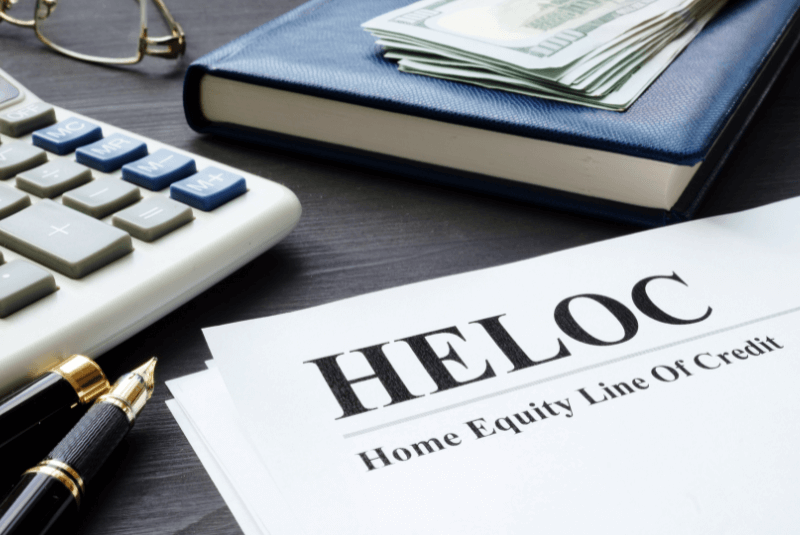
Navigating the real estate market as a homeowner can sometimes feel like a high-stakes puzzle, especially when considering selling your home. You might ask yourself, “How much equity should I have before selling my home?” or “Do I have enough equity to cover closing costs, moving expenses, and the down payment on a new home?” These are important questions and knowing the answers can make the difference between a smooth sale and a financial strain.
This article is here to help you understand the concept of home equity and how much of it you need before stepping into the real estate market to sell your house. Let’s unravel this complex issue and give you the clarity you need to make confident decisions.
About House Equity and How Much You Need to Sell
House equity refers to the value of ownership you’ve built in your home. Simply put, it’s the difference between your home’s market value and the mortgage balance you still owe your lender. The more mortgage payments you’ve made, the more equity you’ve built in your home. Equity increases as your home’s value increases and you pay your mortgage loan.
But how much equity should you have before selling your home? Well, there’s no fixed rule. However, a general guideline is that you should ideally have enough equity to cover all costs related to the sale of your home, which includes agent commissions, transfer taxes, and any other selling costs. These costs usually amount to approximately 6-10% of the home’s sale price.
Moreover, if you plan on buying a new home, consider the down payment cost, moving expenses, and potential renovations in your equity calculations. Also, remember that if you have a home equity loan or a home equity line of credit (HELOC), this will need to be paid off when you sell.
Factors such as the current state of the housing market, interest rates, your credit score, and the amount of equity in your house before selling can also influence your decision. For instance, if you have a fixed-rate mortgage and interest rates are currently high, it may make sense to stay put until market conditions improve.
On the flip side, if your current home has significantly appreciated since you bought it, you might have more than enough equity to sell even if you haven’t fully paid off your mortgage. Consider options like a cash-out refinance to tap into your home equity while securing a lower interest rate on your new mortgage.
However, remember that every situation is unique. What worked for others might not work for you. For example, if you’re in a bind and need to sell a house fast in Selma, partnering with cash home buyers in Texas like “Sell My House Fast San Antonio TX” might be a more practical choice. They offer a simple “Sell your house now” process, cutting through the usual selling process. You can bypass the stress and lengthy timelines, even if you feel like you don’t have a lot of equity. It’s all about understanding your needs, examining the real estate market, and making the right move.
Understanding House Equity
House equity is a powerful financial tool for homeowners. But it’s important to understand how it works to leverage it effectively. Home equity is the difference between your home’s current market value and outstanding mortgage balance.
Imagine you bought your house for $250,000 with a down payment of $50,000. If, over time, you’ve paid off another $50,000 of your mortgage loan, you now have $100,000 of equity built up in your home. Additionally, if the market value of your home has increased to $300,000, your equity increases even further.
The equity in your home can fluctuate based on two factors. Firstly, it grows as you make monthly payments toward your principal balance, slowly reducing what you owe to your mortgage lender. Secondly, it can rise and fall with changes in your home’s value, which is influenced by overall real estate market conditions, home improvements, and many other factors.
Remember that home equity is not liquid; you can’t access it directly. To tap into it, homeowners often opt for a home equity loan, line of credit (HELOC), or a cash-out refinance. But remember, these options involve borrowing against your equity and should be approached carefully.
How Home Equity Affects the Sale of Your Home
Home equity plays a significant role in the home selling process. It can affect your profits, your ability to buy your next home, and even the viability of the sale itself.
1. Profits: The amount of equity you have determines your profit from the sale, which is the sale price minus the outstanding mortgage balance and all sales costs. Higher equity translates into higher profits.
2. Buying a New Home: If you’re selling to buy a new home, the equity from your current home can cover costs like the down payment, moving expenses, and even renovations in your new place.
3. Viability of the Sale: In cases where your home’s value has decreased and you owe more on your mortgage than what the house is worth, selling might result in a short sale or bring extra costs out of pocket to cover the remaining mortgage balance.
4. Paying Off Debts: If there are liens on your property or you have a second mortgage or a HELOC, these will need to be paid off at the time of sale, reducing the amount of money you walk away with.
Remember, if the selling process seems overwhelming, other options exist. Firms like “Sell My House Fast San Antonio TX” offer solutions like “we buy houses San Antonio” that cater to those needing to sell their house quickly. Even if you don’t have much equity, you can explore selling your house from start to finish in a much more straightforward and expedited manner. It’s all about finding the best solution for your unique circumstances.

How Much Equity Do You Need to Sell a House
The amount of equity you need to sell a house depends largely on your goals for your next move, your current financial situation, and the state of the real estate market. As a rule of thumb, having enough equity to cover all costs related to the sale is a good idea.
To break even on your home sale, you’d need equity that covers your outstanding mortgage balance, real estate agent commissions, and other closing costs, including transfer taxes, property inspections, and title insurance. Agent commissions typically amount to 5-6% of the sale price; other closing costs can add 2-4%.
Moreover, if you plan to purchase a new home, you might want additional equity to cover the transaction’s down payment and closing costs. However, remember that every situation is unique and you should take the time to evaluate yours with a professional.
If your equity is less than what you owe on your mortgage, you’re considered “underwater” on your loan. If you need to sell in this situation, consider a short sale, where the lender agrees to accept the house’s sale price even if it’s less than the mortgage balance.
Remember cash home buyers in Texas, can offer an easy way to sell a house fast in Selma, San Antonio, or other parts of Texas, even if you’re underwater on your loan.
How to Build More Equity For Your House
Building more equity for your house is bright, whether you plan to sell soon or just want to boost your financial health. Here’s how you can do it:
1. Pay Down Your Mortgage: The faster you pay down your mortgage, the quicker you build equity. Consider making extra principal payments if your budget allows. Ensure with your lender that these additional payments go toward your principal balance, not future interest.
2. Home Improvements: Strategic home improvements can boost the value of your home, increasing your equity. Consider renovations that offer a good return on investment, like kitchen or bathroom updates.
3. Wait for Home Values to Increase: Given time, most homes will naturally appreciate due to inflation and changes in the real estate market. Keeping your home well-maintained can help ensure your home’s value rises with the market trends.
4. Refinance to a Shorter-Term Loan: If you can handle higher monthly payments, consider refinancing from a 30-year to a 15-year mortgage. You’ll build equity faster because you pay more of your monthly principal balance.
5. Take Advantage of Market Conditions: When the housing market is hot, and home prices are rising, your home’s value (and thus your equity) can increase rapidly. If you’re considering selling, this could be the perfect opportunity to cash in on your investment.
Remember, building equity is a journey. You have options if the process feels too slow and you need to sell your house now. You can only sometimes need a high credit score or a huge amount of equity to move forward with your plans.
Wrapping Up
Understanding and building home equity is essential for homeowners planning a home sale. Your home equity influences your selling decisions, potential profits, and next estate steps. Substantial equity provides a cushion for moving expenses, closing costs, and a down payment on your next home.
However, if you’re short on equity, options like a short sale or selling to cash buyers like Sell My House Fast San Antonio TX, who say “We buy houses in San Antonio,” can be viable solutions. No matter your situation, remember that maximizing your equity and understanding your options will help you make the most of your home sale.
